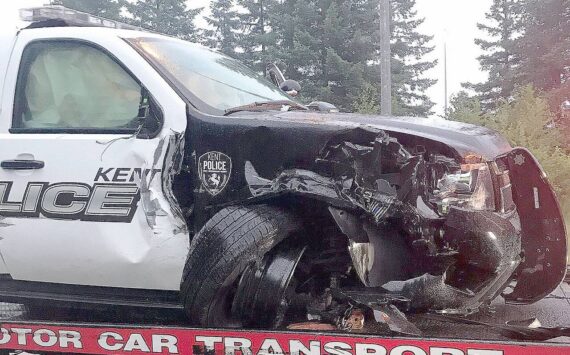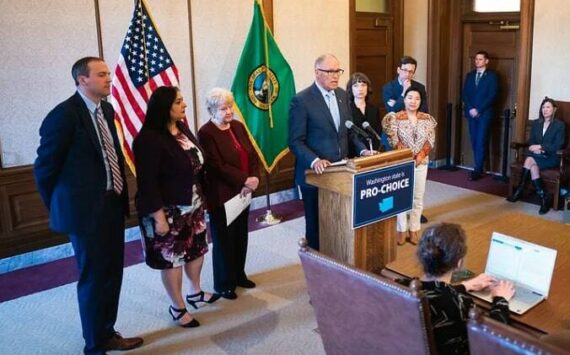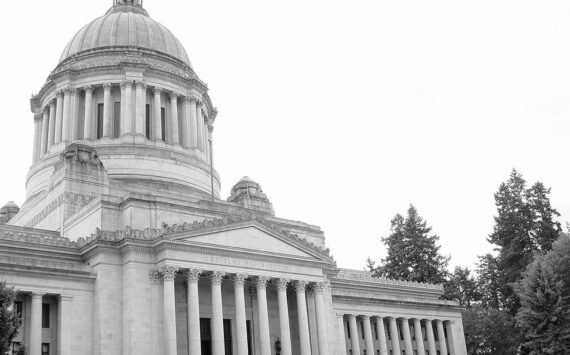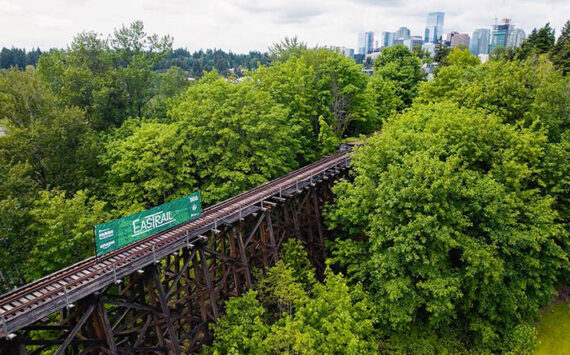OLYMPIA — A second special session began Tuesday with Gov. Jay Inslee urging lawmakers to dump a pair of controversial tax proposals so they can “buckle down and have a reality-based approach” for reaching agreements on school funding and a new state budget.
A capital gains tax sought by Inslee and House Democrats, and a new statewide property tax pushed by Senate Republicans lack enough support to pass in both chambers and should be discarded, he said. A hike in the business tax should be off the table, too, his staff said later.
Inslee suggested ideas such as an internet sales tax, reform of the real estate excise tax, closing tax exemptions and even a carbon tax may be in play as budget writers search for feasible sources of revenue to ensure the state can “fully and amply” fund public schools as the state Supreme Court demands.
And for the first time Inslee expressed an openness to accepting some amount of increase in the statewide property tax, though not the “very large” 1.55 percent hike sought by the GOP. He’s repeatedly criticized that proposal, saying it will lead to much higher taxes on 40 percent of households in order to provide a lower property tax for those in the rest of the state.
“I think that a (budget) plan that has some portion associated with property tax is not anything that would be unconstitutional or that would be totally unacceptable,” he said. “There are some things you could do that would have a state property tax adjustment that could be part of this while not having a grossly unfair situation to vast numbers of people in a little less than half of the state.”
With his comments, Inslee aimed to get House and Senate leaders to shift their negotiations into a higher gear at the outset of this second overtime.
“They have a lot of work to do. They have a long way to go to reach consensus,” Inslee said at a news conference. “There is no more time for lethargy here. It needs to get done in 30 days.”
Sen. John Braun, R-Centralia, the lead Senate budget writer, said he appreciated many of Inslee’s assertions.
“He is trying to bring us to reality,” he said. “We can get to an agreement as long as we do not bargain from positions that are not politically possible.”
Though Braun disagreed with Inslee’s characterization of the GOP property tax, he said the governor’s statements are consistent with his caucus’ goals and indicate levy reform is part of the conversation.
Rep. June Robinson, D-Everett, a member of the budget negotiating team for majority House Democrats, said the governor was “accurate in his assessment” but dropping a revenue source like capital gains “just makes the (budget) puzzle that much harder to solve.”
The second special session got under way at noon Tuesday, less than 20 minutes after the first one ended.
The Democrat-controlled House and Republican-led Senate are searching for agreement on how much more money is required for the state to adequately fund public schools as demanded in the McCleary case and where those dollars will come from. Lawmakers also need to cut a deal on a new two-year budget by June 30 to avoid a partial shutdown of state government.
Both chambers did pass budget plans in the regular session that ended April 24.
The House approved a two-year $44.6 billion spending plan that relies on $3 billion in new or higher taxes with much of the money earmarked for public schools, mental health programs and pay raises for state workers. Of the total, $715 million would come from a capital gains tax and $1.2 billion from an increase in the business tax rate.
The Senate has approved a $43.3 billion blueprint containing the uniform property tax to cover the state’s share of school funding now paid with local property tax dollars. This new tax also requires approval of voters in November.
The two sides have bitterly opposed the other’s approach to raising money.
Robinson didn’t think the governor’s comments would bring an immediate change in budget talks because once you peel off an item like capital gains it makes it a greater challenge to fund the priorities of her caucus.
“Is this going to jump start the pace of negotiations? I don’t see that,” she said. “We are not going to come out with a whole new budget.”
Meanwhile, in the absence of a budget deal, the process of preparing for a shutdown July 1 will soon begin, Inslee said.
He sought to put the kibosh on a notion percolating around the Capitol that the Legislature might pass a resolution to keep government operating beyond July 1 if no deal is reached.
“That is not acceptable to this governor,” he said.
Braun, one of those who has mentioned such a resolution, insisted his caucus is committed to finishing on time.
“No one is negotiating for that outcome,” he said, but added, “In no case will we let government shut down.”
This story originally ran in the Everett Herald.








